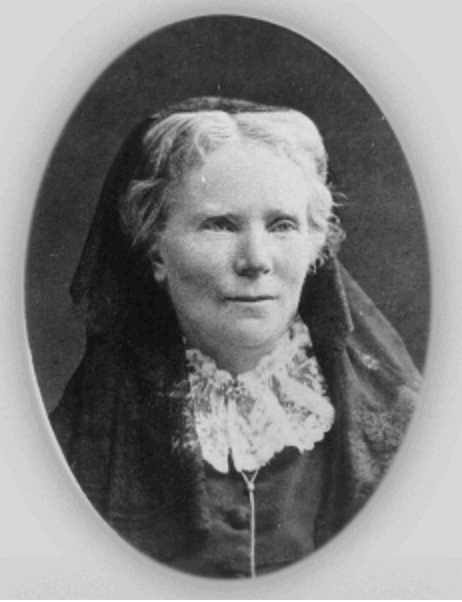In 1849 Elizabeth Blackwell became the First Woman to receive a medical degree in the United States. Her younger sister, Emily Blackwell, was the third. Together the two sisters founded the New York Infirmary for Women and Children which later became a medical college for women.
Their achievements are remarkable but not surprising given their upbringing. They and their seven siblings were raised by a father who believed all his children should be educated to their limits. Dinner discussions often included moral issues such as child labor, slavery, and women’s rights.
Lucy Stone
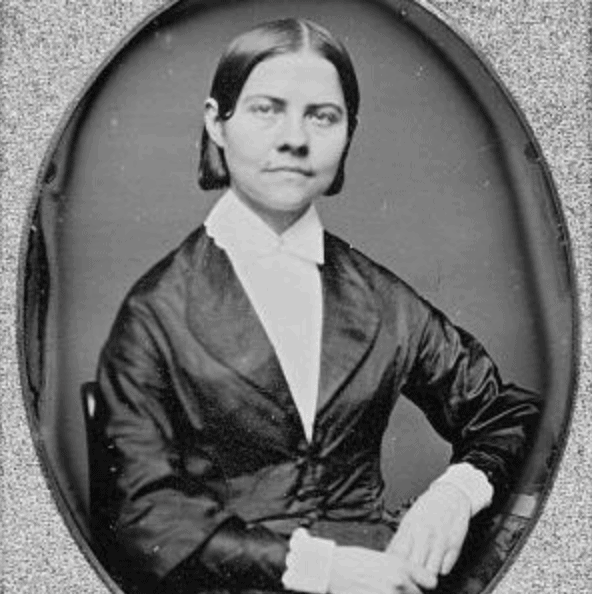
Two of the Blackwell brothers married strong women who hold their own firsts. Their brother Henry married Lucy Stone, the First Woman in Massachusetts to graduate from Ohio’s Oberlin College. She lectured on slavery and women’s rights and scandalized many by wearing “bloomers” that were visible below her shortened skirt. She believed marriage degraded women but agreed to marry Henry if they would be equal in their marriage, a promise Henry kept. Lucy Stone did not give up her name when she married and, to this day, the term Lucy Stoner is used to designate a woman who does the same. Lucy and Henry had a daughter who carried both their names: Alice Stone Blackwell became a suffrage leader like her mother.
Antoinette Brown
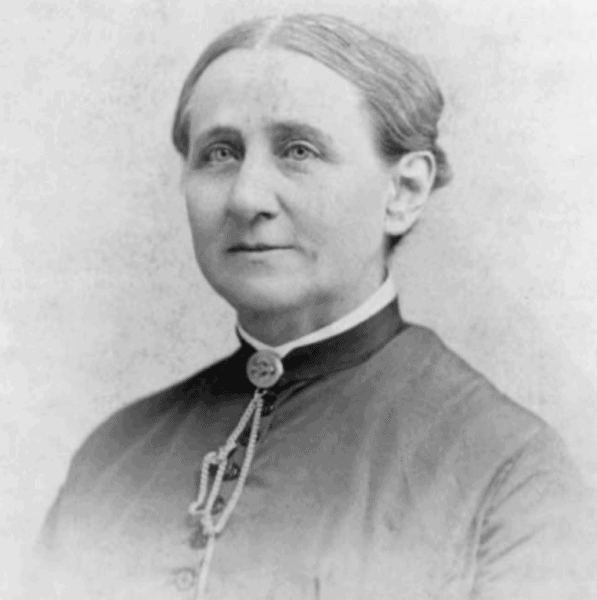
The Blackwell sisters’ brother Sam married Antoinette Brown, the First Woman ordained as a mainstream Protestant minister in the United States. She preached in favor of abolition, temperance, and women’s rights. Of their five daughters, two received medical degrees.
Apart from their own family, the Blackwell sisters associated with other dynamic women. Elizabeth Blackwell, in particular, had contacts with many accomplished women in the United States and in Europe.
Lady Byron and Ada Lovelace
A close friend of Elizabeth’s was Anne Isabella Noel, Lady Byron (wife of the poet). She disagreed strongly with Elizabeth about women’s place in the world. After having devoted her life to Lord Byron, she maintained the belief that women were naturally dependent creatures and that women who were equal to men were the exception. In spite of her avowed philosophy, Lady Byron’s own daughter, Ada Lovelace, became a renowned mathematician.
Elizabeth Garrett
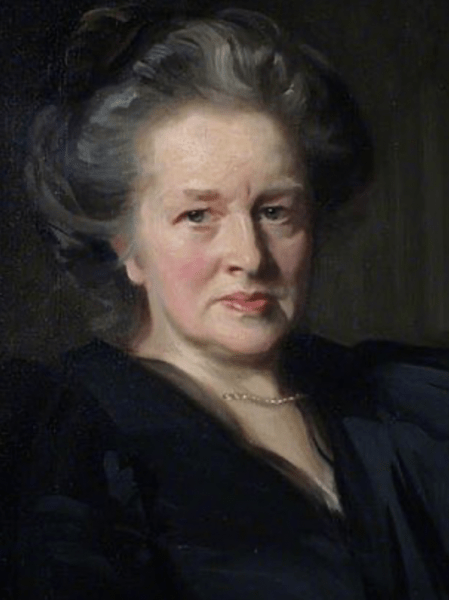
When Elizabeth relocated to England, where she had been born, she mentored Elizabeth Garrett, who became the First Woman in Britain to qualify as a doctor. Garrett’s list of firsts is lengthy: First Woman co-founder of a female-staffed hospital, First Woman dean of a British medical school, First Woman elected to a school board in England, and First Woman mayor in Britain.
Mary Putnam
In Paris Elizabeth befriended Mary Putnam, the daughter of George Putnam, who had published Elizabeth’s first book. She would become the First Woman to receive a degree in Paris and the First Woman accredited by the New York College of Pharmacy in 1865.
Florence Nightingale
Elizabeth also knew Florence Nightingale, who founded the first secular nursing school in the world. They disagreed, however, as Nightingale believed women should be nurses not doctors.
Rebecca Lee Crumpler
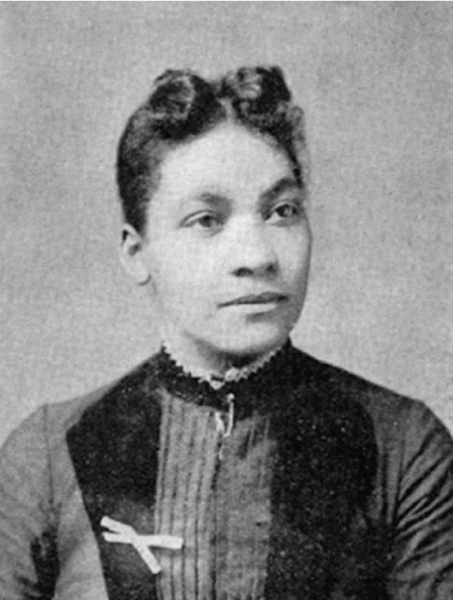
Both Blackwell sisters practiced their beliefs and included African American women practitioners at their infirmary. Among them was Rebecca Lee Crumpler, the First African American Women to graduate from the New England Female Medical College.
What does it take to be a First Woman? Perhaps there is some inner strength that propels them forward; perhaps there is a sense of injustice that will not be denied; perhaps there is a lack of fear about what others will think. It also helps if they are surrounded by supportive family and women like themselves.
For more about Elizabeth and Emily Blackwell, check out The Doctors Blackwell by Janice P. Nimura:
